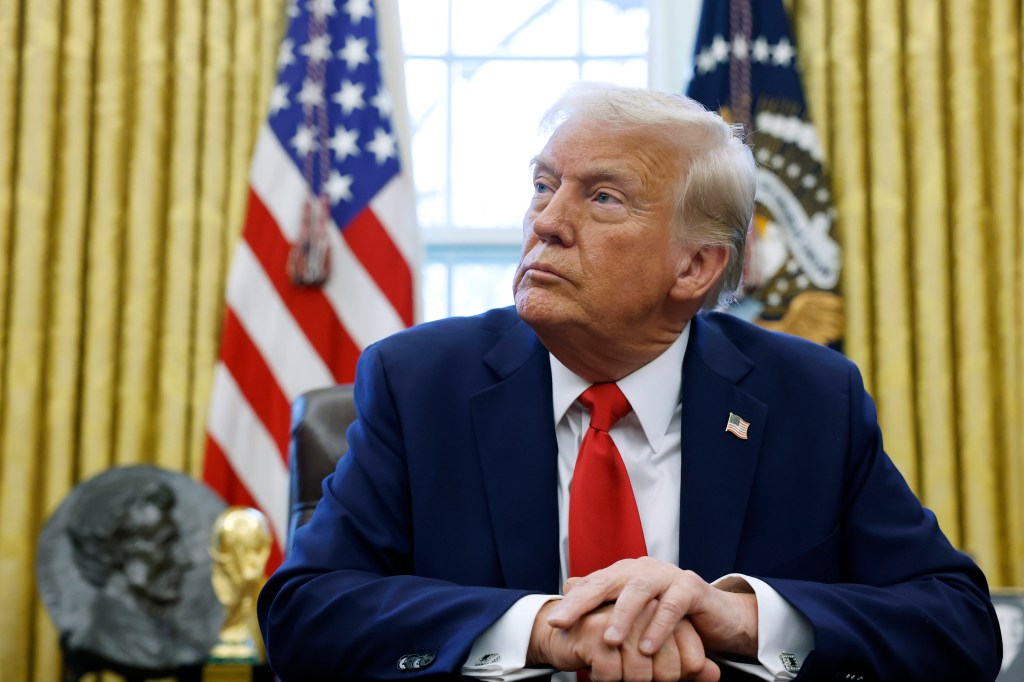President Donald Trump just signed an executive order directing the Department of Justice (DOJ) to pause enforcing a much-used 1977 law that prohibits American companies and foreign firms from bribing officials of foreign governments to obtain or retain business.
“It sounds good, but it hurts the country,” Trump said of the law, known as the Foreign Corrupt Practices Act or FCPA, when he signed the order at the White House.
“Many, many deals are unable to be made because nobody wants to do business, because they don’t want to feel like every time they pick up the phone, they’re going to jail,” Trump said in a factsheet accompanying the order.
A White House official told CNBC that this directive is “a pause in enforcement to better understand how to streamline the FCPA to make sure it’s in line with economic interests and national security.”
The order instructs US Attorney General Pam Bondi to pause prosecutions under the FCPA until she issues revised enforcement guidance that promotes American competitiveness. “Future FCPA investigations and enforcement actions will be governed by this new guidance and must be approved by the attorney general,” the document said.
Focus already streamlined
As we already mentioned on GRIP, AG Bondi issued a memo on February 5 that streamlined the focus of DOJ prosecutors’ approach to handling FCPA cases.
According to that memo, the Criminal Division’s FCPA unit will now prioritize investigations related to foreign bribery that facilitates the criminal operations of cartels and transnational criminal organizations (TCO), such as cases that involve bribery of foreign officials to “facilitate human smuggling and the trafficking of narcotics and firearms,” the memo stated.
FCPA prosecutors will shift focus away from investigations and cases that do not have such a cartel or TCO connection; in other words, the DOJ will mainly investigate and prosecute organized crime and cartels engaged in bribery. This is a switch in focus, as the DOJ’s FCPA focus has traditionally been on large US-based entities and persons doing business abroad, targeting those who used corrupt means to secure commercial advantages, such as energy, healthcare and telecommunication companies and their executives.
GRIP Comment
The pause in total enforcement could signal a review of whether the FCPA will be used as a legal mechanism at the agency to achieve the more limited focus Bondi outlined – or even become more narrowly structured – or if it will be fully trashed.
Characterizing the law as one that puts US firms at a disadvantage to foreign competitors because they cannot engage in practices that are “common among international competitors” seems to ignore the fact that other countries, such as the UK with its Bribery Act, Brazil’s Clean Company Act, and Canada’s Corruption of Foreign Public Officials Act, also prohibit bribes to foreign officials.
Even in the absence of a specific FCPA corollary, foreign governments have lent their enforcement and investigative assistance (if not their own charges) in the DOJ’s foreign bribery cases. For example, in 2018, France participated in a coordinated resolution between French and US DOJ authorities in a foreign bribery case, and Swedish authorities were instrumental in helping the DOJ resolve a case in 2019.
And the recent addition of a law that penalizes the person receiving the bribe – a law passed with great bipartisan support last year called the Foreign Extortion Prevention Act – empowers the US government to protect American citizens and businesses from bribe demands that take place abroad.
You don’t need to be Republican or Democrat to demand accurate recordkeeping and want to prevent grease payments to foreign officials that skew competitive bidding processes – often by way of third-party vendors that are deliberately or not-so-deliberately unmonitored.
We will see what the DOJ does, how Congress acts, and if the SEC will end up being the agency responsible for FCPA enforcement, with its smaller remit over public companies.
In 2024, the Justice Department and the SEC filed 26 FCPA-related enforcement actions, and at least 31 companies were under investigation by year’s end, the factsheet referencing Trump’s FCPA pause order said.

















